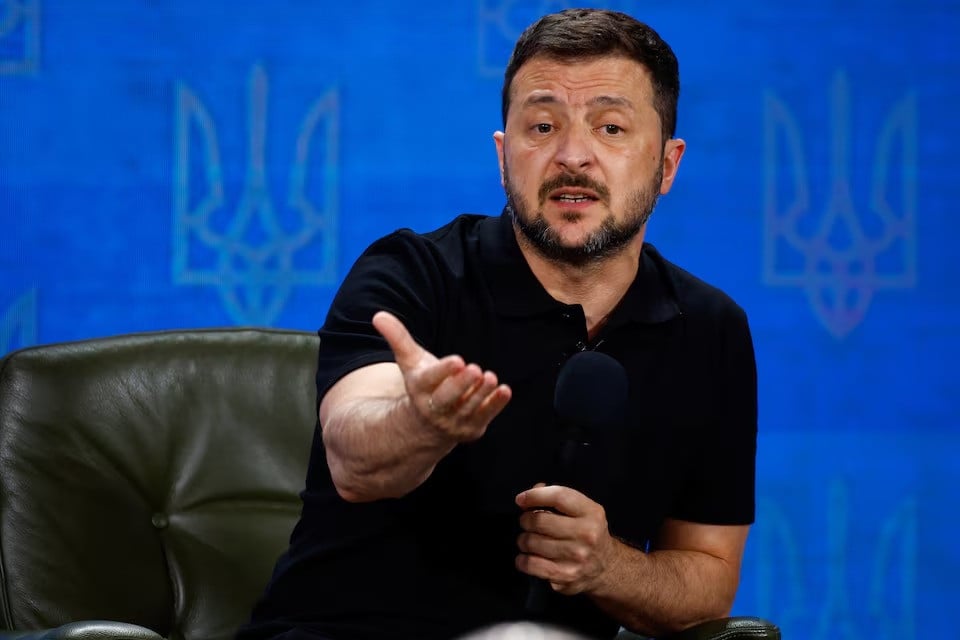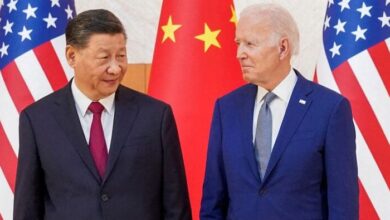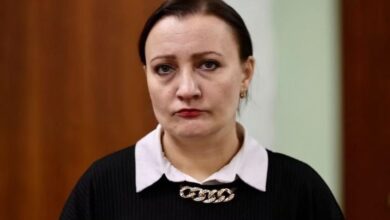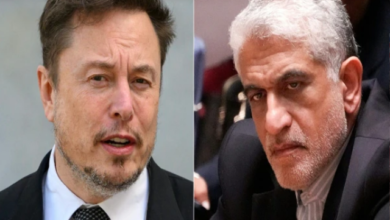Ukrainian President Volodymyr Zelenskiy presented his “victory plan” to NATO and the European Union on Thursday, receiving pledges of ongoing support but no immediate endorsement of his call for a fast-track invitation for Ukraine to join NATO.Zelenskiy’s plan, which calls for more weapons and the lifting of restrictions on long-range missile strikes inside Russia, was aimed at rallying Ukraine’s allies as Moscow’s forces press ahead in the east and Western support shows signs of uncertainty ahead of the US presidential election.During his visit to Brussels, Zelenskiy warned that failing to back the plan would only embolden Russian President Vladimir Putin, emphasizing that Ukraine’s potential NATO membership would deliver a decisive blow to Moscow’s invasion efforts.“Putin must respect our strength, not have the free world tremble at his threats,” Zelenskiy told European leaders.
At NATO headquarters, Secretary-General Mark Rutte reaffirmed the alliance’s commitment to Ukraine, promising that Ukraine “will be in NATO,” but avoided supporting Zelenskiy’s call for an immediate invitation.
Instead, Rutte reassured Zelenskiy that the West would provide everything Ukraine needs to prevail in the conflict, emphasizing unity among Ukraine’s allies.
This support comes as Zelenskiy faces growing challenges, including the advancing Russian military, the looming threat of power shortages as winter approaches, and questions about continued backing from the US amidst the upcoming presidential election.
Republican candidate Donald Trump has expressed mixed signals regarding Ukraine, with a recent meeting between him and Zelenskiy revealing both support and caution.
In a private conversation in New York, Zelenskiy presented his victory plan to Trump, requesting more weapons and a lifting of limits on missile strikes.
Trump, known for his favorable relationship with Putin, struck a measured tone, suggesting he could broker a peace deal between Zelenskiy and Putin if he wins the election.
While Trump praised Zelenskiy’s resilience, he maintained an open stance towards negotiations and was noncommittal about whether Ukraine should cede territory to Russia.
Zelenskiy’s meeting with Trump, their first in-person encounter since 2019, comes against a backdrop of fluctuating Republican support for Ukraine. Congressional Republicans have voiced concerns over continued aid, and some were displeased with Zelenskiy’s recent political engagements in the US, viewing them as overly partisan.
Meanwhile, the EU and NATO are grappling with the broader implications of Zelenskiy’s victory plan.
Germany and the US remain cautious about endorsing Ukraine’s NATO membership, wary of being drawn directly into the conflict.
German Chancellor Olaf Scholz, when asked about the proposal, reiterated Berlin’s longstanding opposition to issuing a membership invitation during wartime.
Despite the mixed reception, some of Ukraine’s closest allies, including Baltic nations, have voiced strong support for Zelenskiy’s initiative.
Lithuanian Defence Minister Laurynas Kasciunas called for an immediate NATO invitation, describing it as a “point of no return” in Ukraine’s integration into Western defense structures.
Zelenskiy’s proposal also includes a non-nuclear deterrence package for Ukraine and potential involvement of Western nations in developing Ukraine’s mineral resources.
These proposals are seen as part of Kyiv’s broader strategy to solidify international backing while also potentially replacing some U.S. forces in Europe with Ukrainian troops.
Amid these diplomatic efforts, the Biden administration has pledged more than $8 billion in additional military aid to Ukraine, underscoring its commitment to Kyiv.
However, Zelenskiy’s next steps may hinge on how much support he can secure from both US and European leaders as winter approaches and the war grinds on.







